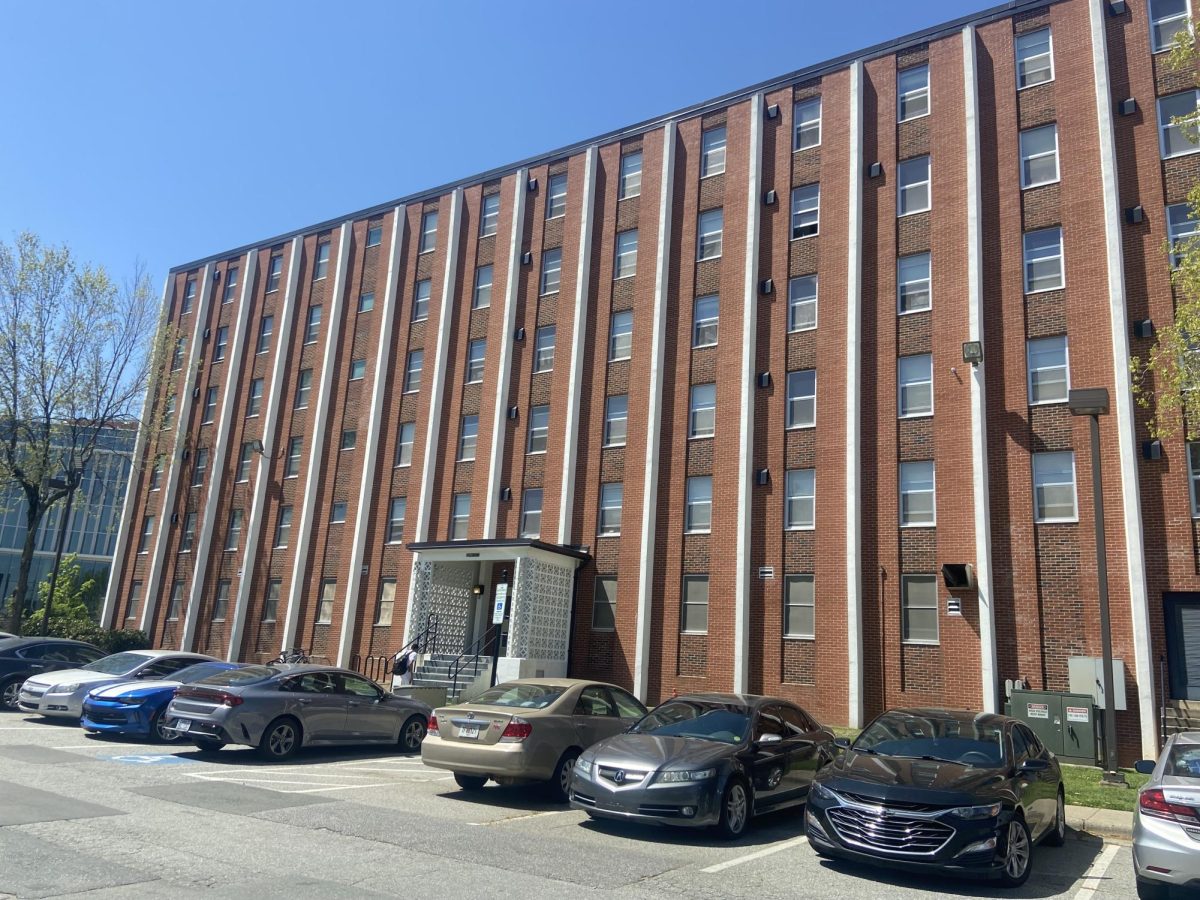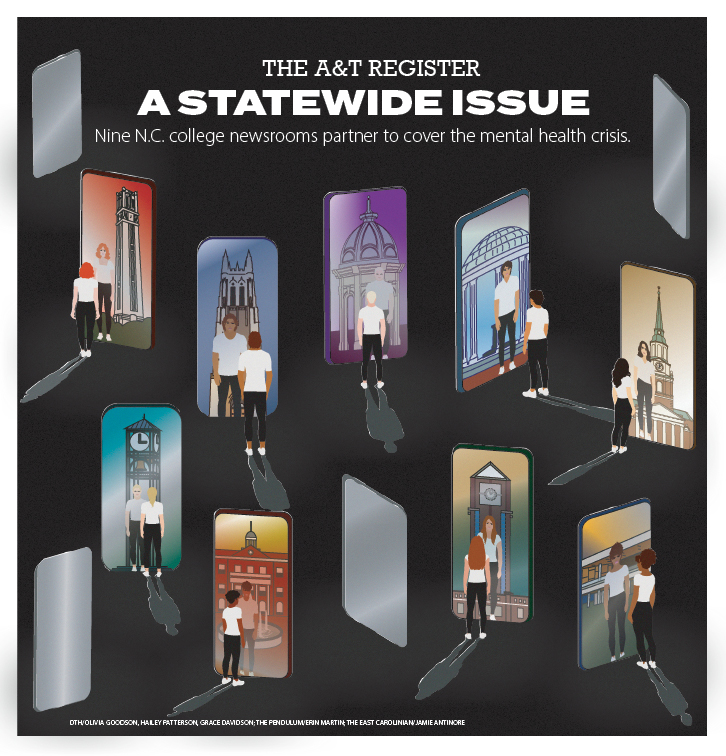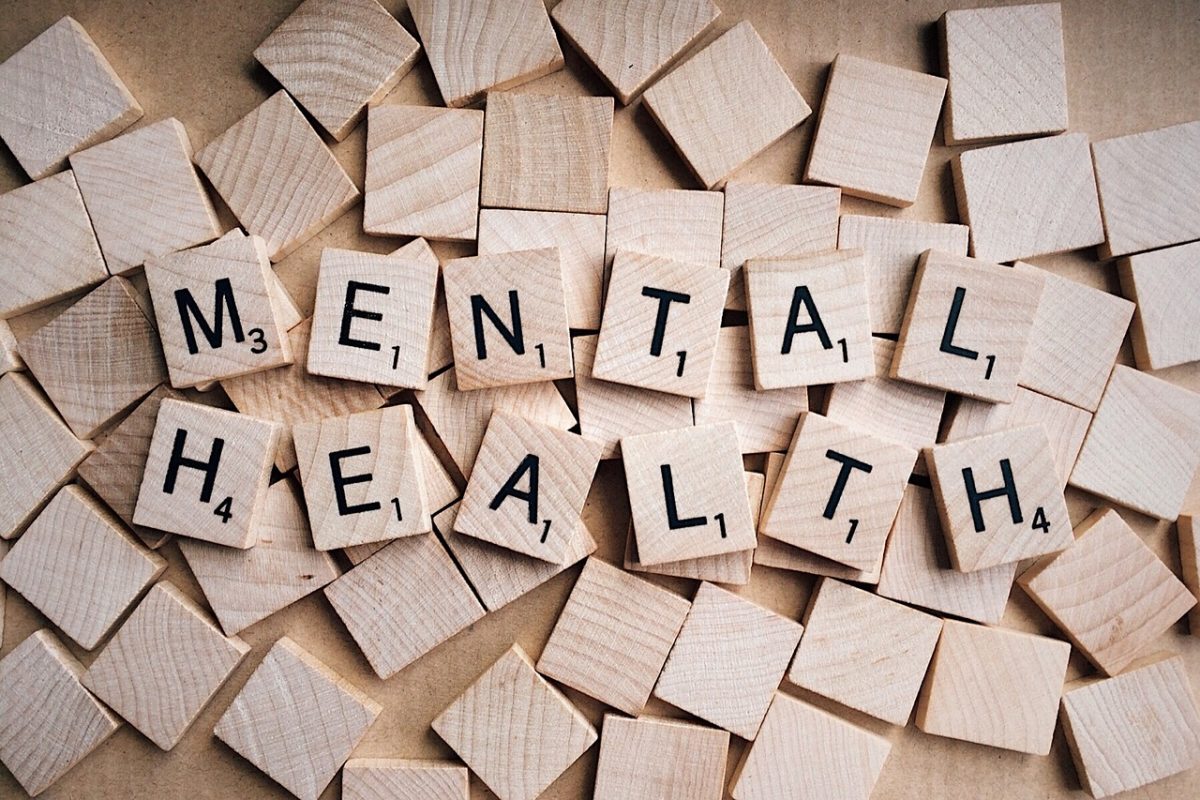Being different has never been easy, ask Nyasha Gibbs. She’s the president of Acceptance Without Exceptions (AWE), the gay straight alliance organization on the campus of North Carolina Agricultural & Technical State University. As if being president of such an organization wasn’t different enough, she is also an African American lesbian on an historically black university campus.
“Being President of a gay-straight alliance is a challenge above all things,” Gibbs said. “You face many obstacles, some of which being from the community you represent. Our organization faces discrimination from students, faculty and staff; heterosexuals and members of the LGBT community. Much of the discrimination stems from identity issues.”
But this is not what makes Gibbs unique. Like her, there are thousands of students on college campuses all across the country that faces the difficult task of leading a gay straight alliance. What makes Gibbs different is her push to bring Safe Zones to A&T. No, these aren’t areas where people go in a panic, and they aren’t a campus safety initiative.
Safe Zones provide students of the lesbian gay bisexual and transgender community a spot on campus that they are free to be themselves & not face discrimination. This is a national movement that is just finding its way to the doorstep of A&T, and Gibbs, along with the help of Dr. Maria Palmer from the Multicultural Student Center, is trying to spearhead Safe Zone Training and growth on campus. Safe Zones have five main goals:1. To provide information and advocacy for Gay, Lesbian, Bisexual or Transgendered (GLBT) members and Allies.
2. To help the A&T community understand GLBT issues.
3. To insure employees of A&T understand their responsibility to safeguard the rights of all students, including GLBT members and allies.
4. To train faculty and staff to provide harbor and refuge if and when needed to students who are facing issues of sexual identity, discrimination or violence.
5. To help eradicate homophobia and heterosexism from the campus of A&T.
“I would like to think that I had been smart enough or powerful enough to brainstorm and implement the idea off Safe Zones on my own, but that is not true,” Gibbs said. “Safe Zones are implemented on grade school and college campuses across the nation. It was initiated by Dr. Maria Palmer of the Multicultural Student Center. I served on the planning committee for Safe Zones and also the student panels featured at the trainings.”
Gibbs took her direction from Palmer, and together they have been expanding the realm of Safe Zones one office at a time.
“A&T’s slow progression in a changing world has caused other organizations and businesses to feel a certain way,” Gibbs said.
“I realized through working with students that the LGBT students did not have any support on campus,” Palmer said. “I visited other universities in the UNC system and found out what they were doing. I was impressed with what I read and heard about Safe Zones, and with the help of some former and current students, did some research and put together a proposal to the administration.”
Currently A&T is the only campus in the UNC System that doesn’t have a “no discrimination based on sexual orientation” policy in its employee handbook. As a result, Palmer has been pushing to bring Safe Zone Training to various campus administrators to try and help bring more awareness.
While some administrators are less then willing to conform, they aren’t the only people who are less than thrilled about not only the Safe Zones, but also AWE’s existence in general. For Gibbs, every step is an uphill battle.
“The heterosexual or straight individuals on campus show their animosity towards the LGBT community in a number of ways; whether it be from ripping down all of our event flyers or the silenced physical abuse on the walk home from the cafeteria,” Gibbs said.
“Honestly, this animosity stems from identity issues as well. You have the closeted homosexuals who bash on gay people to cover up their own homosexual behaviors. I would say that at least 10% of the entire student population consists of these closeted homosexuals.
“These are the people who always spark up a conversation about having sex with females, make references to females body parts or how much they love females, and then subsequently how much they ‘could not be gay’ and always speak so negatively about the lifestyle. They are also the instigators, and sometimes the initiators, of gay bashing and hate crimes.”
Palmer also says that she has found it difficult at times to get everyone to understand the significance of what the Safe Zones is.
“The biggest challenge has been lack of participation in the training,” Palmer said. “Faculty and staff are very busy and we don’t have enough time and incentives for folks to get the training. There are also some very entrenched prejudices that keep people from being willing to explore their attitudes and sign up for training.”
Gibbs and Palmer also find themselves at odds with the black community as a whole. Gibbs says that misinformation and bad translation of a centuries old document is the root of a lot of the issues she finds herself facing.
“The Black community is strongly against the LGBT community. The Church has condemned homosexuality, and this institution is the foundation for the values of the Black community since its introduction to Christianity in the years of slavery,” Gibbs said.
“The issue does not lie with the Church. The issue lies with the mistranslation of the Bible, which individuals who most often do not read the Bible and harbor the most ill feelings towards LGBT person use against that community.
“The Bible condemns many things (consumption of shellfish, men shaving their beard, women praying without a head dress) yet society chooses one to strongly uphold. In the times of slavery, and in the current day for some people, the Bible was used to defend the buying, selling and beating of slaves.”
Gibbs says that this is just one of the many things that AWE is working on. She says that a lot of students misunderstand the organization, or don’t really know what it truly is about.
“Some students feel that our organization just has movie nights or tries to convert people or is solely a social network, but they don’t see us promoting safe sex on and off campus and changing the views of universities and multi-million dollar companies from across the nation of A&T at activism conferences and banquets,” Gibbs said.
“Our organization has made some accomplishments on campus though. We are the longest running LGBT organization on campus (3 years). We have sponsored a lot of great events in that time span, and we are continuing to grow and be known by many activist groups, companies and student organizations from other Universities.”
As far as student perception and reactions of Safe Zones, Gibbs knows it will take time for people to come around but she has a lot “optimism.
“I don’t think students know what Safe Zones are and what the logo means unless they have attended a school in which Safe Zones were implemented,” Gibbs said.
“I think that the more that Safe Zones are publicized and the more faculty and staff that stand up as an ally, the more students will be comfortable talking about their problems, and it might also open a lot of people’s eyes and cause them to be a little bit more accepting.
That is all we are asking for at the end of the day; not that you agree with the lifestyle, but that you accept us as equals.”
Currently, there are only a few Safe Zones on campus, but with locations in the offices of orientation, counseling services, student leadership, greek life, the multicultural student center, and the honors program, the movement is sure to spread.
- Dexter R. Mullins






